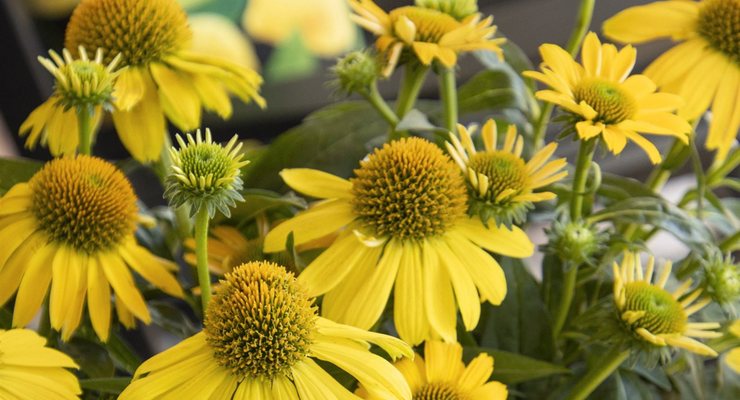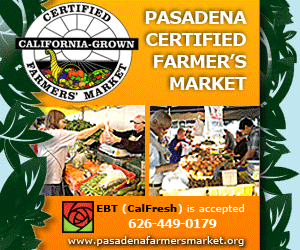
Bees, birds, butterflies, and other pollinators play an important role in our global ecosystem. In fact, they are essential. By transporting pollen from one plant to another, they make growing the food we eat and the beautiful garden spaces we enjoy possible. One of the easiest ways to support a healthy growing environment is to plant a diverse selection of plants, making sure to include the types of blooms that various pollinators love.
“Pollinator gardens provide food for bees, butterflies, moths, wasps and other helpful species,” says Diane Blazek, Executive Director at National Garden Bureau (NGB). “In turn, they pollinate the vegetables that produce our food. They really are essential. That’s why it is important for everyone to do their part.”
You don’t have to devote a large space to pollinators to make a difference. Container gardens are a great way to provide the food sources that pollinators need to thrive. Having movable containers can also come in very handy if you want to move your pollinator gardens from space to space. Let’s say you really want to attract bees but have company coming and there is a concern about the nearness of your beloved bees. It is easy to move the containers to another area of your garden for the duration of that visit! Or you have hummingbird-attracting plants and want to move them so you can watch them at work from the comfort of your home. Simply move them to be visible from inside!
Customize your blend
A diverse selection of plants attracts a diverse range of pollinators. Different flower colors attract different pollinators but adding various flower shapes and forms is also important. Butterflies like flower clusters with flat, open blooms like yarrow, coneflower, and zinnia. Hummingbirds like the tubular flower types such as penstemon, cuphea and salvia. Bees and wasps prefer different types of flowers depending on their tongue length.
10 plants with a purpose
There are so many beautiful pollinator-friendly plant choices, the container combinations are endless. Here are a few to get your pollinator containers growing.
“National Garden Bureau chose Verbena as our Annual of the Year and Phlox as our Perennial of the Year for 2022, due in part to their popularity with pollinators,” says Blazek. “Both Phlox and Verbena are beautiful, easy-to-grow flowers that are available in a wide variety of colors.” Compact Garden Phlox look stunning in larger containers while groundcover types create a cascade of early spring flowers for pollinators to feed on. Heat-loving Verbena are available in mounding or trailing types that can be container centerpieces or softening accent plants.
Coneflowers, or echinacea, provide a summer pollinator food source, then a fall/winter seed source, for the birds. Compact varieties can be a wonderful addition to smaller containers, while taller types serve as the focal point of the container. Since Coneflowers come in many color choices, you’re sure to find one to work with your color scheme.
Sedum flowers late summer and early fall, providing a food source at a time when fewer floral resources are available. Look for Back in Black Sedum, an NGB Green Thumb Award winner, as a great addition to your fall pollinator garden.
The tall, spikey blooms of both annual and perennial Salvia are naturals in any pollinator garden. Extremely easy to grow, and available in several different colors and species, they look beautiful in containers all on their own. One new salvia, also a winner of the NGB Green Thumb Award, is Hummingbird Falls and guess what, it is a hummingbird magnet!
As its name suggests, Bee Balm, or monarda, is a proven feast for bees. Colorful, pom-pom shaped blooms planted in containers capture the attention of both pollinators and humans.
The beautiful blooms of lavender are a big draw for pollinators, while the scent provides a welcome and calming invitation for all visitors to linger in the garden.
Sunflowers now come in compact sizes that are perfect for containers. Choose from bushy, reblooming types or dwarf types, both of which can be used in patio pots.
If you’re looking for a drought-tolerant, pollinator-friendly plant, Lantana is a good choice. Spreading varieties in a vast array of warm colors look great spilling over the edges of containers.
With its airy texture, Coreopsis is another excellent choice for pollinator containers. Bright-colored blooms are especially attractive to butterflies.
Container tips
Don’t forget to water! Container gardens will dry out faster than landscape plantings, so water more frequently to keep the soil evenly moist. For almost care-free gardening, consider using self-watering containers. Simply keep the water-holding reservoirs at capacity and your plants will be watered as needed.
In addition to a large selection of flower colors and textures, pollinators are attracted to blooms at varying heights. Place your containers on decorative plant stands to elevate containers for a pleasing design.
Need additional information on attracting pollinators to the garden? Visit National Garden Bureau online here:
https://ngb.org/2022/05/04/portable-pollinator-gardens/.











